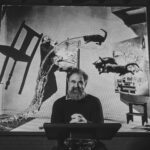
Alisa Gracheva is a compassionate and dedicated practitioner, blending her expertise in the field of clinical mental health with holistic healing approaches to support individuals on their journeys to wellness. As a licensed mental health counselor, she offers professional, personalized therapeutic care. Her work is also enriched by deep knowledge of spiritual counseling, energy and sound healing, and plant medicine practices. By integrating diverse modalities, Alisa supports healing on mental, emotional and spiritual levels, helping clients find balance, clarity and empowerment in their lives.
Alisa’s journey into the world of trauma healing and spiritual awakening didn’t begin in a classroom—it began with a quiet but persistent feeling that something was missing. From a young age, she carried an unshakable sense of searching, a longing for meaning and wholeness that eventually led her across continents and deep into the inner landscapes of the human soul. Now a dedicated clinical mental health and spiritual counseling specialist, Alisa brings a rare and powerful fusion of clinical expertise and spiritual insight to her work. Drawing from her own lived experiences, years of personal healing, and advanced therapeutic training, she helps clients reclaim their inner strength, reconnect with their authentic selves, and find peace beyond pain. With a practice rooted in compassion, curiosity, and a holistic approach, Alisa is not only a healer—but a guide for those ready to awaken their own inner wisdom and begin the transformative journey home to themselves.
What inspired you to pursue a career in spiritual and mental health counseling?
I think it all started when I was a child and felt like something was missing in my life. This “search” led me to another continent at the age of eighteen. Such drastic change made me experience a lot of trials and tribulations that ultimately helped me figure out what I was searching for. First, I needed to understand why I felt so lost, and second, having to find the remedy for what I was feeling my whole life. Through resolving and healing my own traumatic experiences, which took years, I was dedicated to become a trauma specialist so that I could be of service to others struggling with similar experiences. This became my passion, my calling, my mission.
We need to be like feathers—light enough to rise.
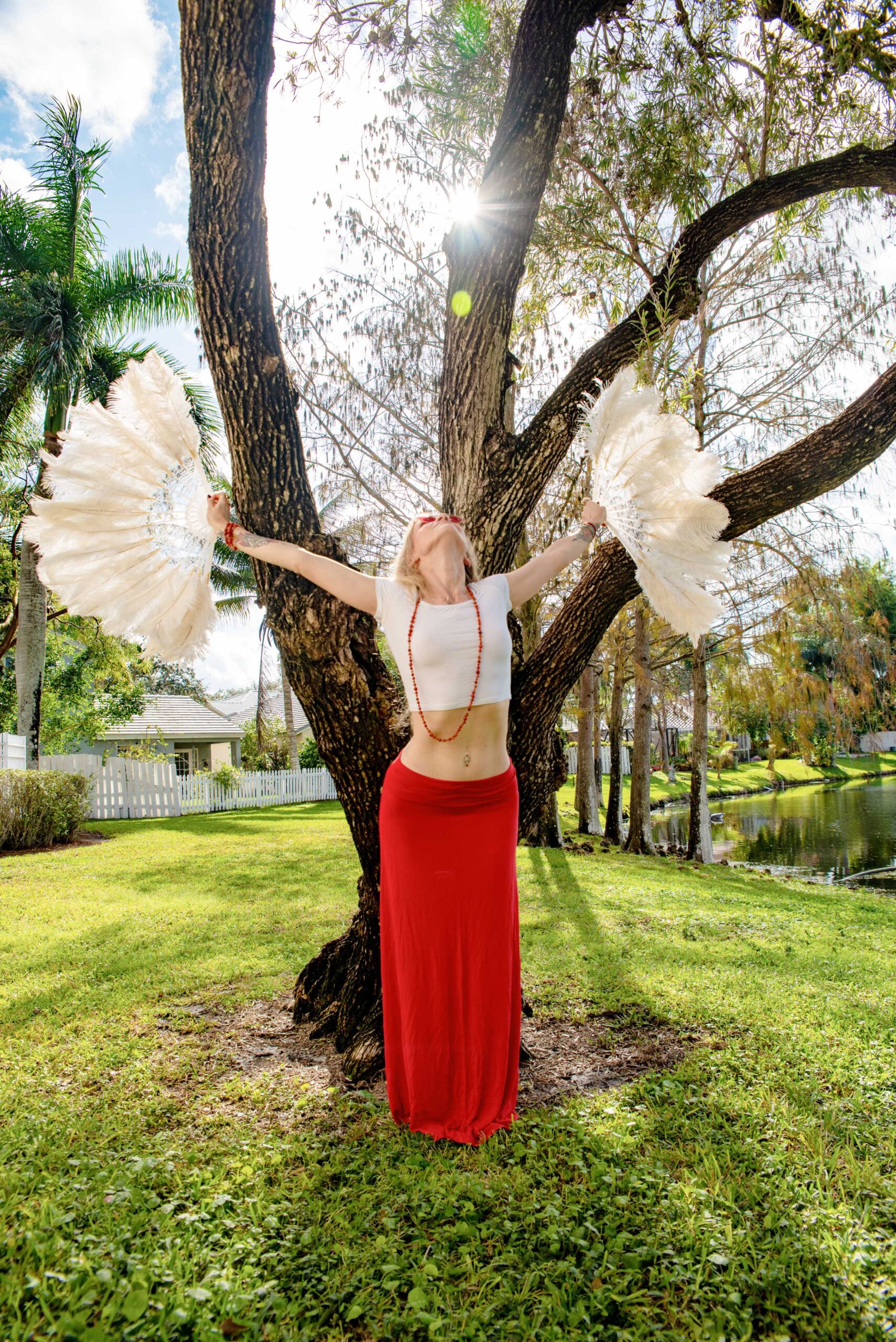
Can you describe your approach to integrating spiritual and psychological principles in your practice?
When dealing with trauma, we often look at it from a human perspective. Meaning, we are trying to solve it with what’s available to us mentally. But our experience of trauma is not just a mental process; it’s physical, mental, emotional and spiritual. Spirituality offers a deeper perspective on why we may have faced a difficult experience, helping us find meaning or growth in the struggle. In contrast, relying solely on mental processing can often trap us in a victim mindset, making it harder to move forward. Why? Because we can’t solve a problem with the same mind that created it. And not a lot of people have interest or time to expand their minds to see this situation from another perspective. Emotions make us feel justified to harbour resentment and anger regarding those traumatic experiences and those lead us to nowhere but suffering. If I see that my clients are open to spirituality and are curious about it, I don’t hesitate to dive deeply into it. However, I believe in a comprehensive but personalized approach with a variety of methods.
What are some of those methods?
EMDR – Eye Movement Desensitization and Reprocessing. A psychotherapy technique used primarily to treat trauma and PTSD. It helps people process and reframe traumatic memories by using bilateral stimulation (like guided eye movements), reducing their emotional intensity.
CBT – Cognitive Behavioral Therapy. A widely used, evidence-based form of talk therapy that helps individuals identify and change negative thought patterns and behaviors. It’s effective for conditions like anxiety, depression, and phobias.
Logotherapy – Logo (from Greek “logos” meaning “meaning”) + Therapy. A form of existential psychotherapy developed by Viktor Frankl. It’s based on the idea that finding meaning in life is the primary motivational force for humans—even in suffering. It’s often used to help people cope with grief, despair, or existential crises.
How do you continue to expand your own knowledge and skills to provide the best possible care for your clients?
That’s my favorite topic! I love learning and studying, especially when it comes to my profession. Last year I went full force into EMDR and bringing that to offer to my clients. EMDR is a revolutionary technique I can talk forever about; our trauma, indeed, resides in our physiology! This year alone I took over five trainings and more to come! Now, I am thrilled to offer Ketamine-Assisted Psychotherapy that heals on multidimensional healing through powerful effects of psychedelics.
Like music, tuned to the rhythm of life, a heartbeat shared and unbroken, nourishing all who are close.

How do you assess a client’s unique needs and tailor your therapeutic methods accordingly?
At first, we have to learn about each other. There is a need to ensure that we are a good match for therapy. It’s not just my assessment that counts, it’s where my clients are at this moment. Even though someone may want to heal their wounds, they may not be ready to let go of their past hurts just yet. And that’s completely OK. Sometimes, we may just want to have someone we can entrust our deepest secrets with, and for some people with the history of trauma, this can be a difficult concept to embrace. I am here, and I am available. I believe in the special relationship I build with every person I work with. I learn from them as much as they learn from me. In any relationship, as well as in therapeutic, we always learn from one another, and this is the greatest gift. After this relationship is established, we can turn to a variety of methods to see which will resonate best and make the most impact given the specifics of a particular case. I would say that clients ultimately decide which route they want to go, or which methods make the most sense to them. It’s highly encouraged to try a variety of techniques before deciding which work best; this is an experiential and intuitive process.
What are some of the common challenges you help clients navigate in the realm of spirituality and mental well-being?
One of the challenges is when a client doesn’t trust their own judgement, intuition, and/or instincts. A lot of people with history of trauma learn hopelessness, helplessness, powerlessness, not being good enough, and so on. Those are some deep negative beliefs that prevent people to trust themselves, their decisions, and their own power. Inviting my clients to explore the idea that they can reclaim their power and protect themselves moving forward is one of the challenges we can work on. Another controversial challenge is letting go of trauma. Some people attach themselves to their past hurts just because it’s familiar and uncomfortably comfortable. We are creatures of habits and some of us can get too attached to the painful story we are telling ourselves. Our trauma will always be a part of our history, but it doesn’t have to be a part of our story; it can actually become an empowering part of our story, if we choose to. But everyone has a different time frame to reprocess their past and begin their healing journey.
Can you tell us a bit about your recently published book, Walking with Spirit: A Sacred Path to Wholeness.
The book is a heartfelt offering drawn from my years of clinical practice, personal healing, and ancient spiritual traditions. It’s designed as a supportive companion for anyone moving through grief, trauma, spiritual disconnection, or major life transitions. The book weaves together soul-centered practices, intuitive insights, and reflective guidance to help readers reconnect with their inner truth. At its core, it’s a reminder that our wounds aren’t signs of weakness—they’re invitations into deeper wholeness. Whether someone is just beginning their healing journey or has been on the path for years, this book is meant to gently support the soul in remembering what it already knows.
Like water, and constantly in flow.
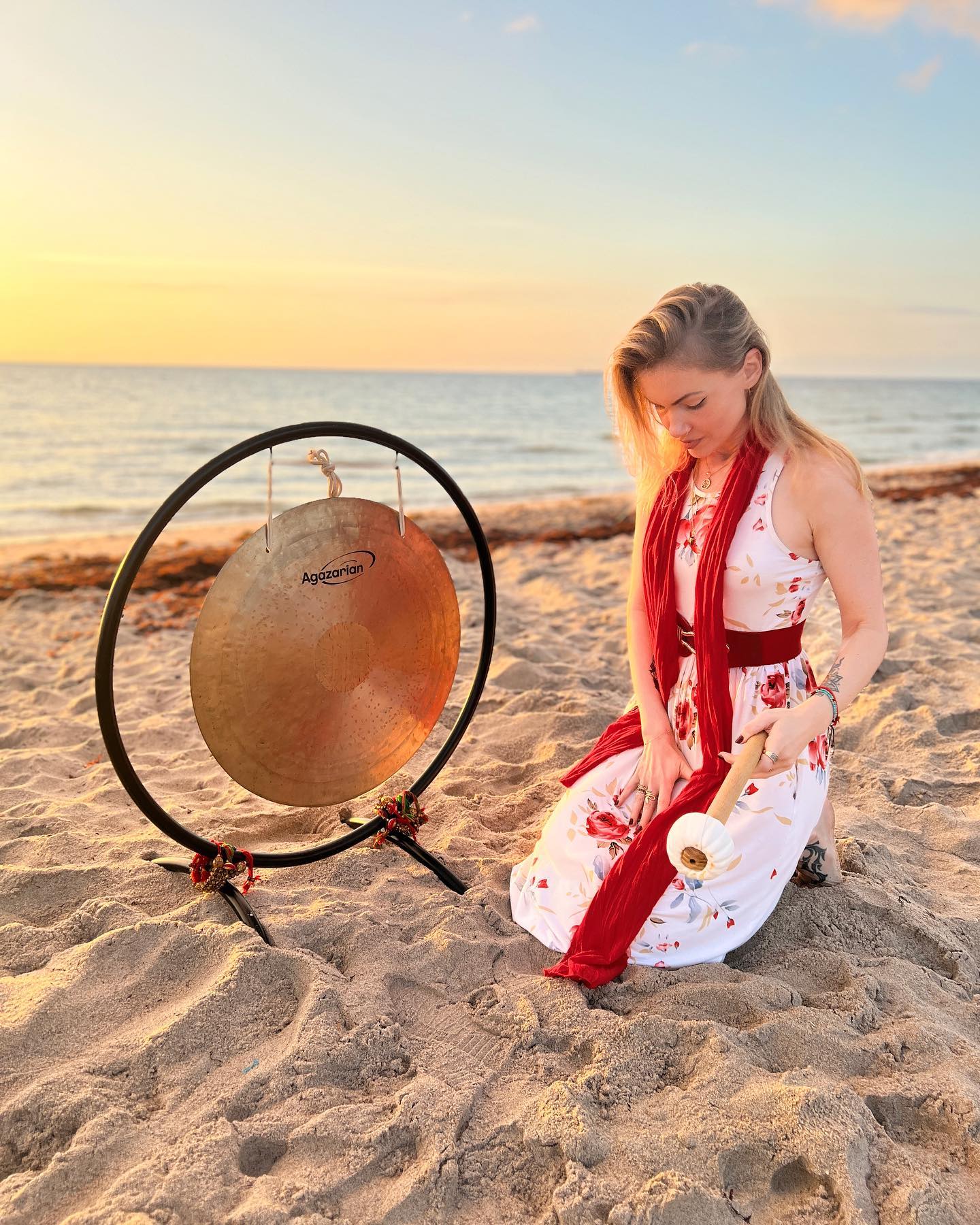
In your experience, what are the key factors that contribute to an individual’s overall mental and spiritual health?
There are so many factors contributing to that. But, I believe it starts with self-love and self-awareness. I think that if we truly love ourselves, we will never put ourselves or remain in situations that can cause us harm; we withdraw quickly. And to practice self-love, we have to become self-aware. In most cases, we don’t even know who we are and why we do the things we do. We are shaped and conditioned by our families, society, culture, world, but have no idea what drives us, motivates us, inspires us, or scares us. To grasp those concepts, we have to learn to discipline ourselves, and that’s the skill not practiced by many, unfortunately. Discipline is a skill that helps us to become the masters of ourselves. Then we learn about our own values outside of the “system.” If we get a good understanding what and who we are, we may have a map for how to proceed and move towards something that is deeply meaningful and fulfilling. With the use of discipline, we become committed to our personal goals as well as our healing journey. We learn what is good for us and helps us grow and work on staying on top of that. Self-care is crucial, but it’s not often what we think it is. We may enjoy a spa visit or an occasional massage, but self-care is also about making sure we get enough sleep, refuse to party when we have to get up early, make sure that our laundry is done and the food for the week is in the fridge. We must learn to parent ourselves and that level of dedication will always deliver positive results if we stay consistent with it.
How do you encourage your clients to develop self-awareness and take an active role in their healing journey?
We are the unstoppable force of nature. Even though our bodies are limited, our energy is eternal and invincible. The only obstacle is to truly know it and believe in it. For that, we need to learn to know ourselves intimately, and that’s why self-awareness is essential. If we learn who we are and not just follow the habits that formed this unhealed version of self, we are able to change those habits upon recognizing them. As a professional, I may have guidelines we can follow, but the client is always the expert in themself. However, the noises from social media, TV, news, and other people can make it impossible to hear ourselves. Turning off the chatter we are so used to can be scary, but it is a necessary step to knowing yourself. No one will know you better than you would know yourself; all of those feelings we bottled up inside, all of those secrets we don’t tell, all of those sacred desires we are cautious to share to others. No one will truly know real you, no matter what people say or think. So the journey to our own healing starts with recognizing the importance of becoming self-aware in order to heal yourself.
Like roots intertwined—grounded in love, connected by strength.
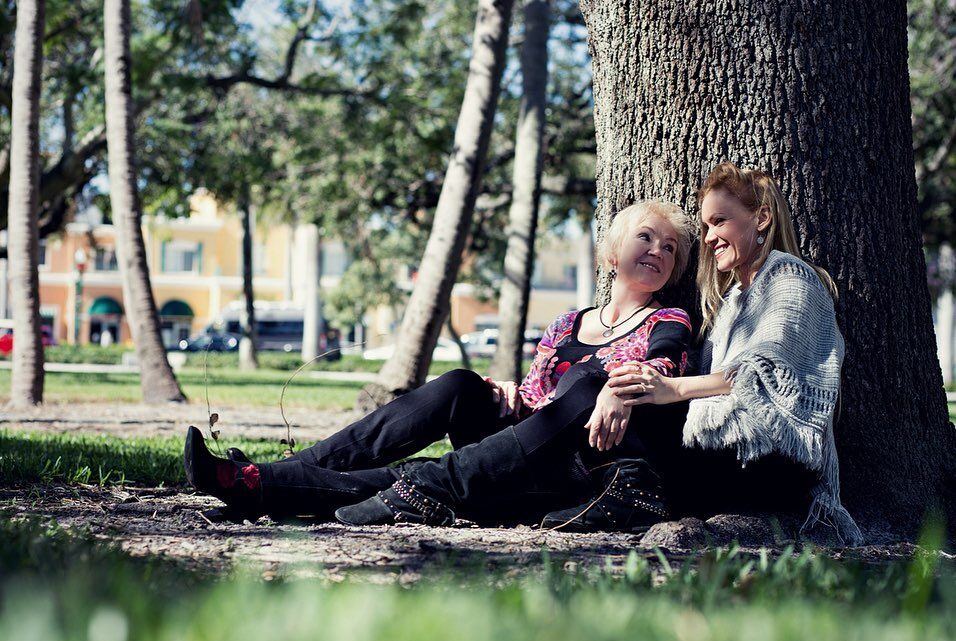
Can you share any insights or strategies you’ve found particularly effective in helping clients or even yourself achieve greater inner peace and balance and reduce stress and anxiety?
Meditation. There are so many ways to get to know our energy rather than our restless mind, and there are so many types and styles of meditations available. Until we practice it for a while, we won’t be able to get the benefits it provides. Some people try to go within once and claim that meditation is not working, and they are absolutely correct. It takes time to reap the benefits, but we need to stay dedicated to this process.
Self-Talk. How we talk to ourselves is so important. There are thousands of people who would talk badly to us. We have to ensure that we are not one of them. That’s why it is crucial in getting to know ourselves and becoming our best friend and confidant. Everyone is entitled to their opinion, and even their opinion about us. But if we don’t trust ourselves, we may find ourselves believing in those negative messages and it can be deeply disturbing. Positive affirmations and learning to motivate ourselves in the face of adversity can be one of the most important skills we can learn.
Growth. Constant learning will help us to always keep our mental horizons open. It doesn’t matter what that is, go and try it out. Maybe it’s taking a class, seminar or workshop. Maybe it’s getting more education. Maybe its learning a new hobby or a skill. Setting personal goals and achieving them creates a momentum that’s necessary for peace. When we are stagnant, we are stuck. We need to be like water, and constantly in flow. When we’re not growing, a sense of anxiety naturally arises—because the world isn’t standing still. It keeps changing, and we’re constantly being called to adapt and evolve with it.
Monitoring social media consumption. So many studies already described the negative effects of social media when it’s used excessively. Comparing what we see in cyber space is inevitable and it will destroy our joy with time. Balancing between our personal goals and distractions is a must.
Intimate circle. Who we surround ourselves with will ultimately influence who we are. If you don’t feel good spending time in someone’s company, then please don’t. There are over 7 billion of people out there, we can and will find nurturing and positive people to bring close to us. Let’s choose wisely and practice letting go.
Like the wind—carrying us with grace, shaping our path, steadfast, yet ever-changing, in harmony with the earth beneath.
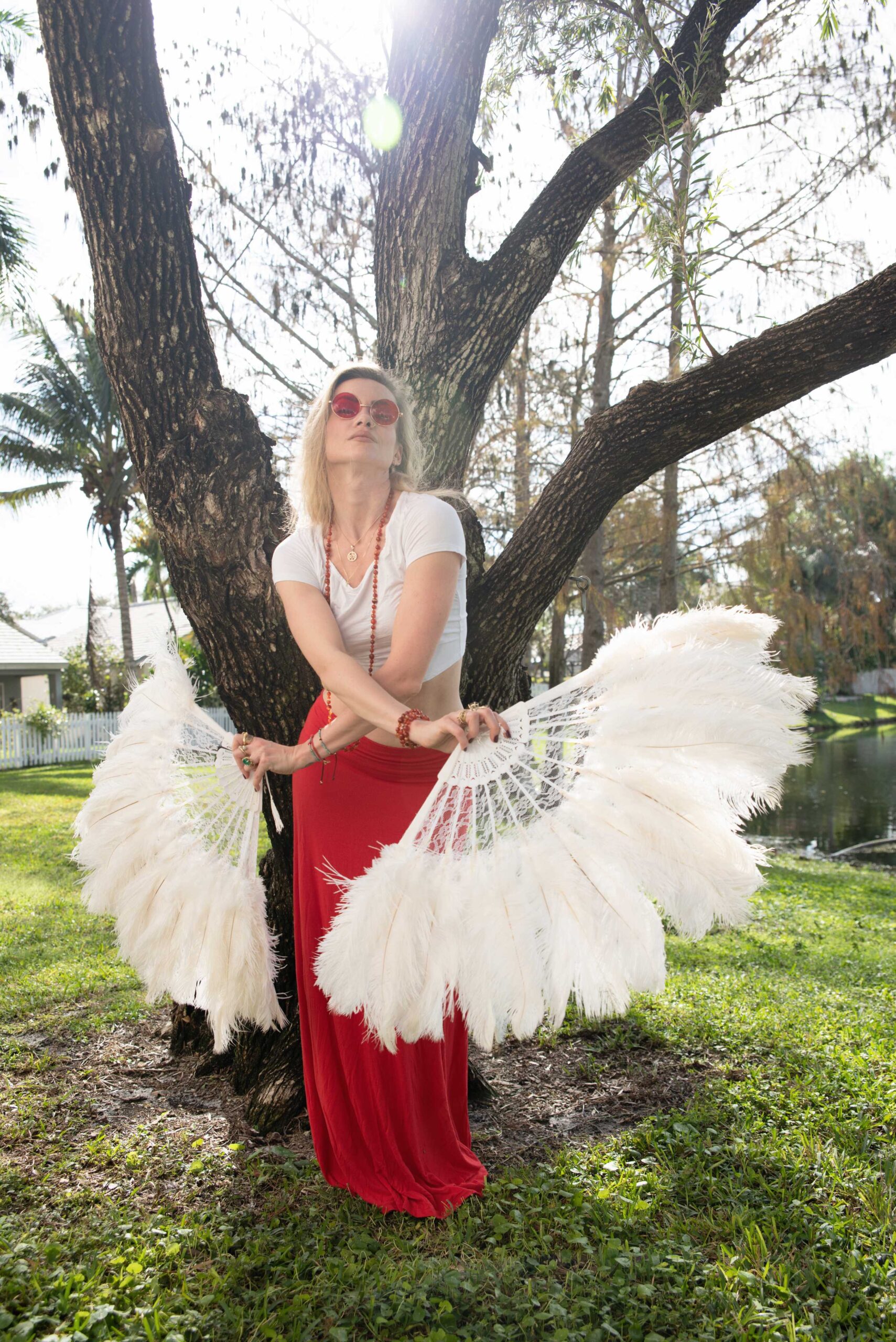
What role do you believe community, relationships, and social connections play in supporting mental and spiritual wellness?
A very important one. It shapes who we are. We can’t choose our family or where we are born, but we get to choose who we can become and navigate our circle to ensure it aligns with our highest good. We get heavily influenced by our environment. So, no matter where we are, there will be a moment to reflect and analyze if our environment is healing us or killing us. We learn tendencies of those around and that can be a deadly game for some of us. Working in treatment, I’ve gained a good understanding how quickly people can get influenced by their support circle and how much it can cost them to be surrounded by people who don’t have the best intentions at heart. It can become a life or death situation for many.
What changes have you noticed in the way society approaches healing and mental health?
I think that as a society, we become more aware, more conscious, and more connected. And this is wonderful. Although we may not see it on the news, many of people can probably feel it. A lot of respect is given to unconventional healing modalities that allow us to go deeply into our consciousness; sacred medicines (ayahuasca, mushrooms, ketamine), sound healing, energy work, yoga, etc. When it comes to mental health, it moves forward so quickly! Right now, for instance, neuroscience is something we gravitate towards. Somatic therapies play a big part in working with trauma, so is CBT, and Existential approaches.
I think that the use of spirituality in mental health is on a rise as well, and I am thrilled about it! I think we begin to turn to understanding that everything is interconnected; mental, physical, emotional, spiritual. We began to understand how emotional issues can create physical illnesses within ourselves. Or how negative self-talk can be an obstacle to our healing. We begin to appreciate the placebo effect as we learn that our beliefs can miraculously affect our health. It’s pure magic.
You don’t have to walk this path alone. Walking with Spirit: A Path to Wholeness is here to walk beside you—with stories, wisdom, and practices to help you remember your wholeness.
- Fort Lauderdale, Florida
- Cover Star: Alisa Gracheva
- Publication: 37 Magazine
- Writer/Editor-In-Chief: Jamee Beth Livingston
- Photography by Luis Perez
- Publisher: Livingston Publishing



